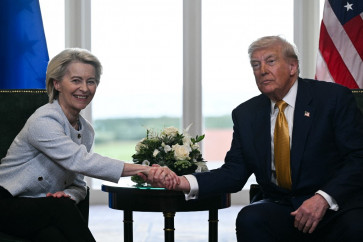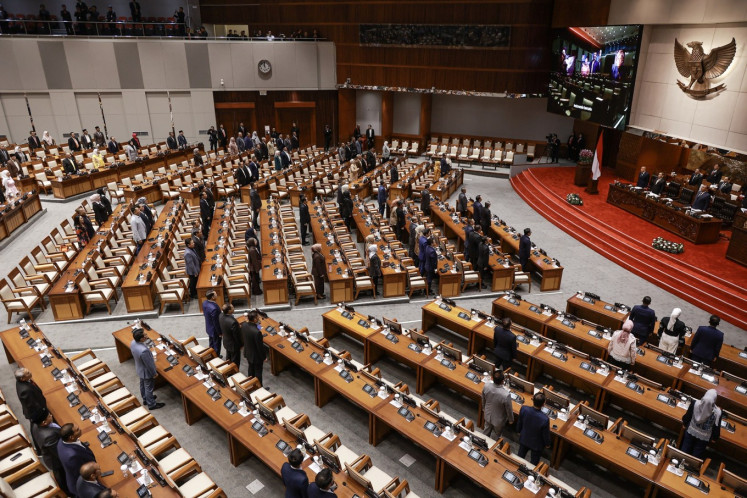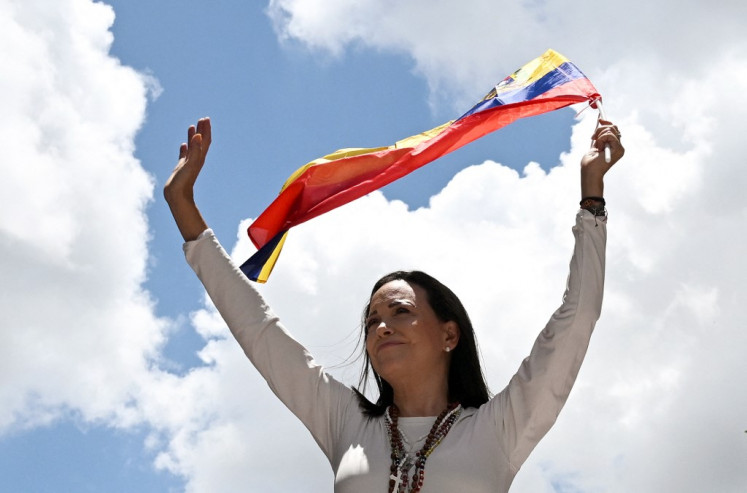Popular Reads
Top Results
Can't find what you're looking for?
View all search resultsPopular Reads
Top Results
Can't find what you're looking for?
View all search resultsGovt to mend policy on renewable energy to remove uncertainty
The government plans to issue a presidential regulation on renewable energy early next year to improve the investment climate in the exploration and production of renewable energy in Indonesia
Change text size
Gift Premium Articles
to Anyone
T
he government plans to issue a presidential regulation on renewable energy early next year to improve the investment climate in the exploration and production of renewable energy in Indonesia.
Energy and Mineral Resources Ministry Renewable Energy Director General Sutijastoto, who heads the team drafting the regulation, said in Jakarta on Nov. 6 that his office had talked to various business organizations and government bodies for input.
“We, the government, are working on boosting renewable energy, and that includes improving pricing policies,” he said. “We have talked to the Finance Ministry and all. The draft regulation just needs to be finalized.”
Sutijastoto did not elaborate on the draft’s content, but the head of the geothermal division at the Indonesian Chamber of Commerce and Industry (Kadin), Fauzi Imron, who participated in discussion on the draft regulation, said the new regulation would, among other things, fix the pricing rules on renewable energy.
Investors in the past have criticized Indonesia’s regulatory flip-flop over feed-in tariffs for electricity generated from renewable sources as a major disincentive for investment.
As a case in point, the ministry issued a tariff scheme in 2016 that state electricity firm PLN will buy solar-generated electricity at 14.5 to 25 US cents per kilowatt hour (kWh), depending on the region, only to revoke the scheme two years later.
Neighboring Vietnam issued a similar tariff scheme in 2017 that attracted many foreign investors to develop solar power stations in the country.
“Indonesia’s feed-in tariff scheme was considered a positive development by investors. Unfortunately, there was a change of [energy ministers] four times in 2016, followed by the birth of several renewables-related ministerial regulations [...] that contradicted previous regulations,” said energy analyst Fabby Tumiwa.
He said that, because of the change, investors who were initially interested in Indonesia in 2016 migrated to Vietnam. “The quality of policies and regulations in Vietnam gave them greater business certainty, clearer business processes and better economic returns on projects,” Fabby added.
“In renewable energy investments, the very first question [foreign] investors ask is about regulations. They know regulations are not attractive for them.”
Renewable energy investment in Indonesia amounted to $1.53 billion last year after dropping 21.94 percent from the previous year, ministry data show.
Fauzi and Indonesian Renewable Energy Society chairman Surya Darma urged the government to also simplify other renewables-related regulations to promote investment.
“Many regulations that have been issued, starting with ministerial regulations Nos. 10, 11, 12, 50, 48 and 49, and so on, let’s evaluate them. I don’t want to say they are not right, but let’s evaluate them,” said Darma.
The mentioned regulations require, among other things, off-grid solar rooftop users to report installations to the ministry (Regulation No. 49/2018) and geothermal companies to get ministry approval before listing on the Indonesia Stock Exchange (Regulation No. 48/2017).
“In renewable energy investments, the very first question [foreign] investors ask is about regulations. They know regulations are not attractive for them,” said Fauzi.
The new presidential regulation on renewable energy was initiated earlier this year by former energy minister Ignasius Jonan, but his term ended before the ministry could issue the regulation. Jonan handed over his position to current Minister Arifin Tasrif in September.
While Indonesia’s General National Planning for Energy road map stipulates that Indonesia should get 23 percent of its energy from renewable sources by 2025, the country has only reached 8 percent as of last year, according to ministry officials.
British Petroleum’s latest annual Statistical Review of World Energy is less forgiving, as it estimates Indonesia got only 3.8 percent of its energy mix from renewables last year.










